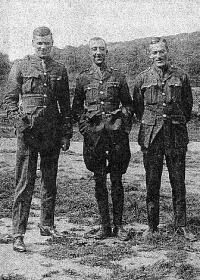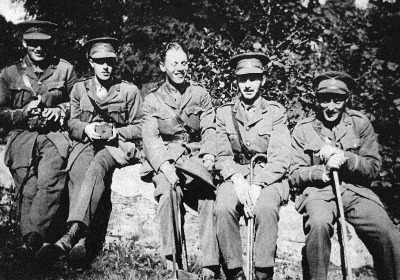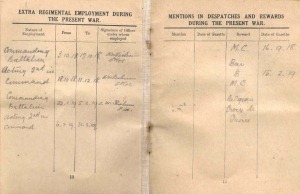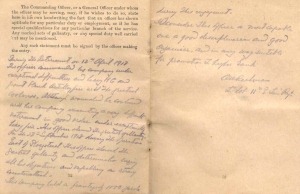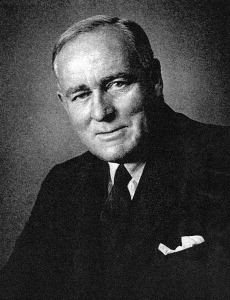
On 21st December 1915, the South African High Commissioner in London wrote to the War Office to support the applications of two of his countrymen, brothers-in-law Jack Duff and Spencer Fleischer, to be granted temporary commissions in the British Army. Both young men had travelled to England at their own expense, after being discharged from the Imperial Light Horse at the conclusion of the German South-West Africa Campaign. Their applications were quickly accepted; before the year came to an end, both men had been appointed to the 3rd (Reserve) Battalion, East Lancashire Regiment with the rank of 2nd Lieutenant, and had received orders to join the School of Instruction at Bedford on 12th January 1916. John (Jack) Shire Duff was born at Fairview, Moon River, Natal on 9th December 1889. Educated at Boys' Model School, Pietermaritzburg and at King Edward VII's School, Johannesburg, he chose mine engineering as a profession. Before leaving for England, he had served for 318 days as a Trooper with the Imperial Light Horse, in which his father had served as a Captain during the Anglo-Boer War. His discharge certified both his conduct and character to have been exemplary during the Boer Rebellion and the German South-West Africa Campaign.
Above: Extract from Jack Duff's 'Blue Book'. Photograph courtesy of Jane Maclean. Spencer Richard Fleischer was born at Johannesburg on 13th December 1892, and was educated at Michaelhouse, Balgowan, Natal. His father - Spencer Charles William Fleischer - had fought alongside the British during the Anglo-Boer War. An assayer at Moddersfontein Gold Mine in civilian life, he served alongside Jack Duff in the Imperial Light Horse from which he was discharged after 350 days service on 10th August 1915 with the rank of Corporal.
Above left: Jack Duff (left) and Spencer Fleischer (right) at Bedford in 1916. Above right: Officer group, probably also at Bedford; Jack Duff is at the far left, and Spencer Fleischer at the far right. Photographs courtesy of Anthony Fleischer. After completing their training at Bedford, both officers joined the 3rd Battalion at Plymouth. By the autumn of 1916, the 3rd Battalion was sending men to the Western Front at a rapid rate as replacements were needed for the heavy losses suffered by the regiment's 1st, 2nd, 7th, 8th and 11th Battalions during the Battle of the Somme. In one month alone 15 officers and 517 other ranks were sent overseas. One year after completing their service with the Imperial Light Horse in South Africa, both Jack Duff and Spencer Fleischer were sent to the Western Front. While Jack Duff was posted to the 11th Battalion (Accrington Pals) on 14th August 1916, attaining the rank of Captain as early as 9th September 1916, Spencer Fleischer was sent to the 8th Battalion. Fleischer was promoted to full Lieutenant on 25th November 1916, shortly after his battalion took part in an attack on the Somme front between Beaumont Hamel and Serre, and was further promoted to Captain on 12th August 1917. By this time the 8th Battalion had been involved in offensive actions near Arras in April and May. Later in the year, the 8th would play its part in the Third Battle of Ypres, an offensive from which the 11th Battalion was thankful to be spared. The two friends were reunited early in March 1918 when, as the 8th Battalion was being disbanded, Fleischer was one of 20 officers transferred to the 11th Battalion. Although neither is recorded as having had a prominent role to play at Ayette some three weeks later, each was in the thick of the action when leading "W" Company (Duff) and "Z" Company (Fleischer) through at least two of the battalion's later engagements at the Lys, La Becque and Ploegsteert. At the Lys on 12th April 1918, Duff "commanded his company under exceptional difficulty and heavy MG and point blank Artillery fire with the greatest coolness. Although wounded he continued with his company executing a very difficult retirement in good order under exceptionally heavy fire. This officer showed the greatest gallantry."1 Duff's wound - he had been hit in the left arm by a machine gun bullet - saw him return to England for treatment on 17th April. A Medical Board held on 8th May at Prince of Wales' Hospital for Officers, Marylebone recommended Duff be granted three weeks leave before returning to General Service. Jack Duff and Spencer Fleischer were both awarded the Military Cross for their actions on 12th April 1918. At La Becque on 28th June 1918, Fleischer won a Distinguished Service Order when "he led his company against a strongly fortified position, which he captured in spite of determined resistance, inflicting severe casualties on the enemy, taking field guns, trench mortars, and large numbers of heavy and light machine guns. He personally rushed one of the guns that were delaying the advance. His capture of this important position undoubtedly made subsequent success possible."2 Having been posted back to the 11th on 26th August 1918 via the 3rd (Reserve) Battalion, which by this time had relocated to Saltburn, Duff won a bar to his Military Cross on 28th September at Ploegsteert where "he showed the greatest gallantry and determination under heavy shell and machine-gun fire. He seized all his objectives, and seeing that he could exploit success, he ordered a further attack on La Douve Farm, which he took, capturing one machine gun. He was then heavily counter-attacked from the direction of Messines. This he drove off. He held a front of nearly 1,000 yards with one company, showing marked courage in moving from post to post, encouraging his men under heavy machine-gun fire."3
When the guns fell silent on the Western Front at 11am on 11th November 1918, both officers were with the 11th Battalion at Geraardsbergen (Grammont). Jack Duff assumed command of the 11th Battalion over two periods between October 1918 and February 1919 when Lt.-Col. Arthur Rickman was acting as Brigade Commander. He and Spencer Fleischer were both demobilized on 14th June 1919, and returned to South Africa where Fleischer married Jack Duff's sister, Di.
© Andrew C Jackson 2003 Compiled from TNA documents WO339/52613 and WO339/52614, "The History of the East Lancashire Regiment in the Great War 1914-1919" edited by Maj.-Gen. Sir. N. Nicholson, and with the kind help of Anthony Fleischer, Jane Maclean and David Ingham.
|

